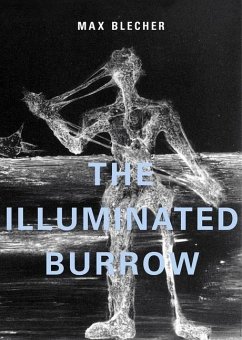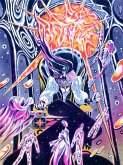Max Blecher began writing The Illuminated Burrow in 1937 and continued working on it until his death the following spring, but its full version was only published posthumously in 1971. It was the final "novel" in what can be called a trilogy that includes Adventures in Immediate Irreality and Scarred Hearts, and like those, its imaginative distortion of real experiences is reminiscent of Bruno Schulz as well as the Surrealist autofiction of André Breton and Michel Leiris. Set in the sanatoria where Blecher received treatment for spinal tuberculosis, the ostensible narrator is forced to confront the power and limitations of memory as he attempts to capture the last moments of life as they pass "like ash ... through a sieve," one final effort to reclaim the beauty of days spent straddling the boundary between waking and dreaming, encountering the marvelous both inside and outside the sanatorium's walls, inside and outside his very body. As his physical powers decline and he becomes permanently bedridden, the narrator's life migrates to his inner consciousness, an "illuminated burrow" where reality is indistinguishable from fantasy, where the surreal and the mundane seamlessly fuse to enact the fears and fascinations elicited by the vibrant world that is gradually slipping away. Blecher once explained his method: My ideal of writing would be to transpose into literature the high tension found in a Salvador Dalí painting. That cool dementia, perfectly legible and essential, is what I would like to achieve. Explosions that occur between the walls of the room and not at a distance between chimerical and abstract continents. ... Surrealism should hurt like a deep wound.
Hinweis: Dieser Artikel kann nur an eine deutsche Lieferadresse ausgeliefert werden.
Hinweis: Dieser Artikel kann nur an eine deutsche Lieferadresse ausgeliefert werden.








